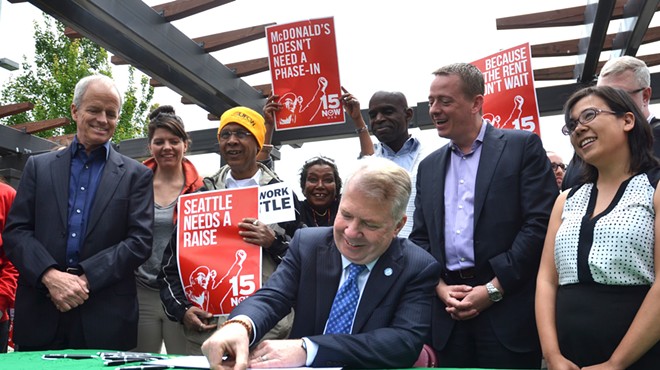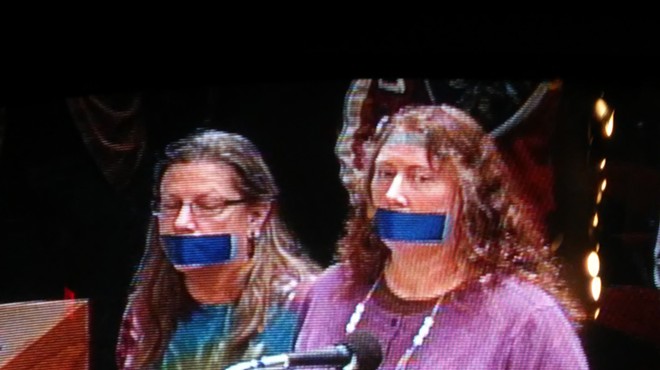Friday, July 22, 2016
Initiative that would raise minimum wage, require sick leave makes ballot
An initiative that would raise the state’s minimum wage to $13.50 over the next four years while giving Washington workers paid time off to deal with illness has qualified for the November ballot.
On Friday, the Washington Secretary of State’s office announced that its Elections Division had completed its random sample of the 345,907 signatures turned in for Initiative 1433 and found “that the measure easily exceeded the bare minimum of 246,372 valid signatures needed to qualify for the ballot.”
“This issue crosses geographical and political divides,” said Carlo Caldirola-Davis, campaign manager for Yes on 1433, in a prepared statement. “When voters hear about Yes on 1433, they know it's good for our workers, our families and our economy.”
The measure, if passed, would allow workers to accrue paid time off at a rate of one hour for every 40 hours worked. Employers would be required to start offering the benefit to employees 90 days after they start work. The time off can be used to address domestic violence,
The other provision of the initiative will phase in an increase
Earlier this year, Spokane City Council President Ben Stuckart and his allies passed an ordinance requiring most employers to offer their workers paid
So what does Stuckart think about an initiative that would be broader than his ordinance?
“We’ve had a huge increase in the last 20 years in income inequality and if we want to get real about addressing things like homelessness and income inequality we need initiatives like this,” says Stuckart.
Stuckart says that although city council tailored its sick-leave law specifically for Spokane, he says the biggest criticism he’s heard against the ordinance is that it would better be addressed on the state level.
“If we wouldn’t have passed it, I don’t think we would have forced the issue,” he says.
Previously, Stuckart has also indicated he’d be open to increasing the minimum wage in Spokane to $11 or $12 an hour, lower than Seattle’s $15. When asked if he was concerned that the $13.50 minimum wage mandated by the initiative was inappropriate for Spokane, he said it would just make it more important for the city to attract new companies and raise median income.
The Association of Washington Businesses responded with a statement criticizing I-1433 for sounding good but being loaded with “unintended consequences,” particularly for first-time job seekers. According to the statement, the AWB and other business groups would have preferred the issue to be taken up by the legislature.
"We want to create opportunities for everyone to succeed without jeopardizing job retention and growth, particularly in rural communities,” said AWB President Kris Johnson, in a prepared statement. “For us, that means support for entry-level jobs and recognition of other compensation that employers already provide like healthcare,
Tags: I-1433 , Kris Johnson , Association of Washington Businesses , Ben Stuckart , News , Image





















